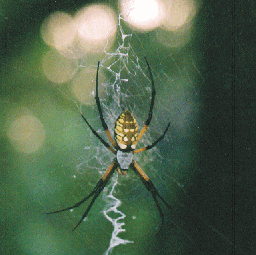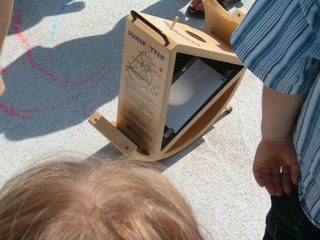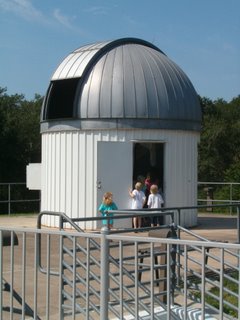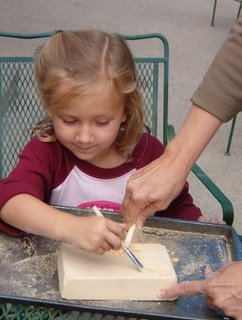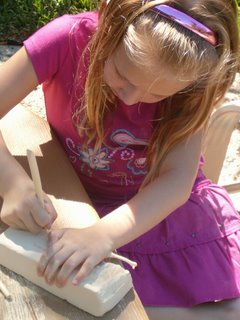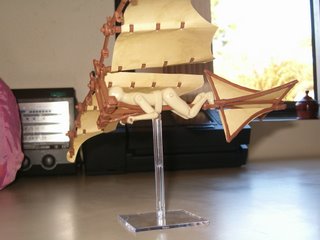
(Picture above: The baby turtles. These turtles are almost 2 months old. They are kept separated because sea turtles are not social creatures and also so they can watch how well they are eating.)
On Thursday, we went with some friends (mom & 2 dds) and spent a day in Galveston. Our first stop was a sea turtle facility. We got there early and, as it was raining, they let us come in and look around. We saw baby turtles (almost 2 months old), yearlings, and 2-year-olds. We were the only people there for most of the "tour." It was very interesting. To me, the most interesting part was how small sea turtles brains are - about the size of a pea! We saw a skull & the hole for their brain was so small! Because of this, though, they don't learn anything new. Everything they need to learn is by instinct. So, they don't have to un-learn anything from their time at the facility and can easily be released into the wild.
Our next stop was the Aquarium, at Moody Gardens. Wow! None of us had ever been there. It was much larger than I thought it would be and we were there several hours. Some of the highlights were: feeding time with the penguins, the touch tank, the snake & dangerous animal exhibit (one of my friend's dds decided snakes weren't so bad after all & we went through this part twice!), and watching the sea turtle eat squid (it had to "fight" for it against the fish in the tank). We would have loved to stay here longer, but we wanted to hit the beach & we had to be back for ice skating.
The last place we went was to the beach. The water was pretty nice, although we only waded. I've been to the beach quite a few times & have rarely seen a pelican. We saw lots & lots of pelicans! I was very excited. And, we watched a sea gull preparing to eat a fish - it would let it go in the water, catch it again, let it go, catch it... about 10 times! I guess he finally ate it. And, we saw sea gulls fighting over food - they don't share very well!
It was a great day at the beach and I felt bad that I haven't taken Alexandra very often. So, we'll be going more regularly! And, there are so many more things to do in Galveston.
My camera needs replaced, so I didn't get very good pictures. My friend got great pictures, though, so I'll share some of those when I can.
 (Photo above: The men feeding the penguins. It was neat to see the men in the exhibit actually feeding the penguins by hand! They also threw a bunch of dead shrimp in the water & we got to watch the penguins swimming through the water, eating their lunch. And, after the men left, they left a big basket of fish. One penguin kept grabbing fish & throwing them on the ground as if he was looking for that "perfect" fish. If I had known my pictures of the penguins would turn out so well, I would have taken more!)
(Photo above: The men feeding the penguins. It was neat to see the men in the exhibit actually feeding the penguins by hand! They also threw a bunch of dead shrimp in the water & we got to watch the penguins swimming through the water, eating their lunch. And, after the men left, they left a big basket of fish. One penguin kept grabbing fish & throwing them on the ground as if he was looking for that "perfect" fish. If I had known my pictures of the penguins would turn out so well, I would have taken more!) We read Sea Turtles by Gail Gibbons. Except for the evolutionary aspect, this was a great book that taught us both a lot about sea turtles!

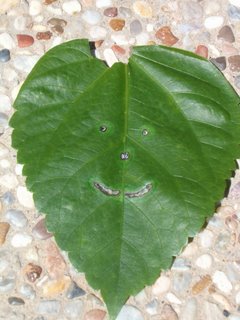
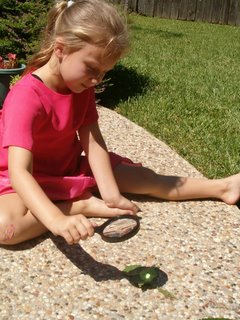

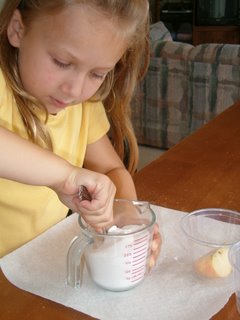
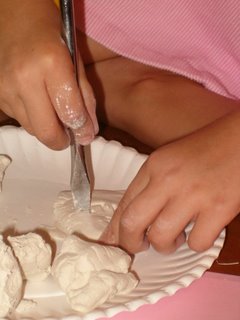

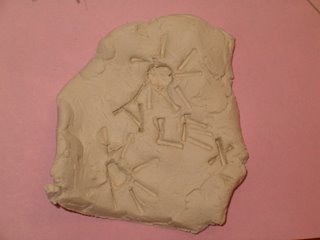
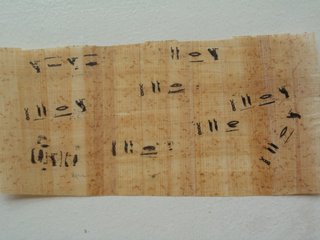





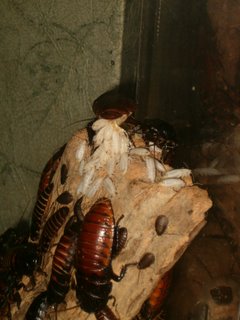

 Alexandra got out some chalk, which we haven't used in about a year, and we were inspired to make our own flags on our driveway.
Alexandra got out some chalk, which we haven't used in about a year, and we were inspired to make our own flags on our driveway.

